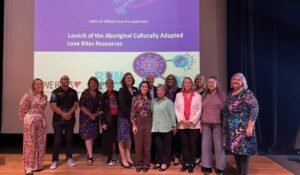Juvenile justice is of key interest to our work at NAPCAN because we know that young offenders are much more likely to have suffered serious trauma in childhood, that locking up children increases rates of rearrest, and that adult contact with the jail system, in turn, increases the risk of harm for the next generation.
As Ross Homel (Griffith University) explains in his article Why locking up youth offenders fails to reduce crime – and what we should be doing instead:
- To turn around the lives of serious repeat offenders, we have to deal with the causes of their offending.
- Incarceration does not, contrary to political rhetoric, deter or rehabilitate these traumatised young people or their peers. What it does do, however, is very effectively re-traumatise them.
- Detention produces higher rates of rearrest and reincarceration than community-based alternatives.
- Frustrated communities have every right to demand solutions. But they should be demanding solutions that work.
NAPCAN has supported the Get Smarter, Not Tougher campaign coordinated by PeakCare and responded to the Queensland Parliament’s Economics and Governance Committee’s call for submissions in response to the Strengthening Community Safety Bill 2023 as follows:
NAPCAN commends PeakCare for taking a leading role in advocating for solutions that are based on human rights and evidence of what works, and urges the government to listen deeply to the wisdom of the many member organisations and others who support the Open Letter, outlining the need to:
- Stop politicising youth crime
- Take notice of the facts
- Protect our children – more than any other age group, they are the victims of crime
- Let First Nations Leaders lead
- Properly resource our teachers and schools
- Take account of children’s disabilities and mental health concerns
- Tackle our social problems
- Hold children accountable for their behaviours in ways that work
- Divert children under the age of 14 from the criminal justice system
Further to this, NAPCAN would like to encourage and support the role of government in helping to build a shared understanding of the problem, bringing people together, and promoting smarter solutions that will benefit the whole community now and into the future.
This will involve a shift in narrative that highlights core common values and engages (rather than polarises) Queenslanders so that together we can focus on realistic collaborative solutions.
In summary, we all want a Queensland that treats every young person – in every community – fairly and supports them according to their needs. We know that building safe supportive communities is good for all of us and helps all our young people to get on a path to healthy, productive lives.
Nowadays, people commonly understand that what happens in children’s earliest years has long-lasting implications; that things – like health care, education, supportive relationships, and nutrition – all help to build strong foundations for life.
However, what many don’t know is that adolescence is a similarly critical phase, a time when the brain is developing the skills that we all need to navigate adulthood.
A key problem is that our juvenile justice system is still treating too many of our young people like adults, and that doesn’t make sense.
In the long-term, that’s bad for these young people, and it’s also bad for Queensland – not only does it lead to increased crime, but we lose out on the contributions that healthy, functioning adults provide to families, communities, and the workforce.
Instead, we can achieve better outcomes by supporting children, young people and their families – through diversion programs, mental health treatment, and other interventions – practices that are both feasible and in line with our modern understanding of adolescent development and neuroscience.
When we invest in young people’s long-term outcomes we can create safer, healthier communities now and into the future.



